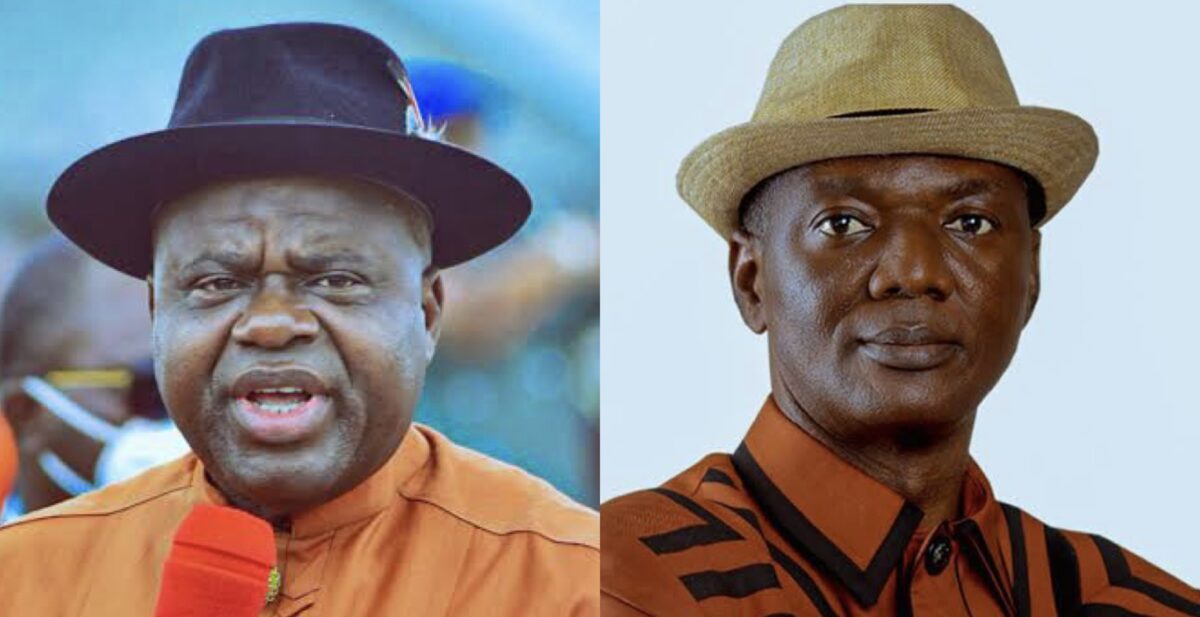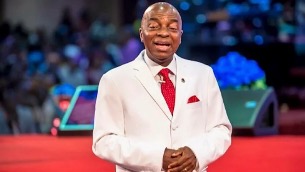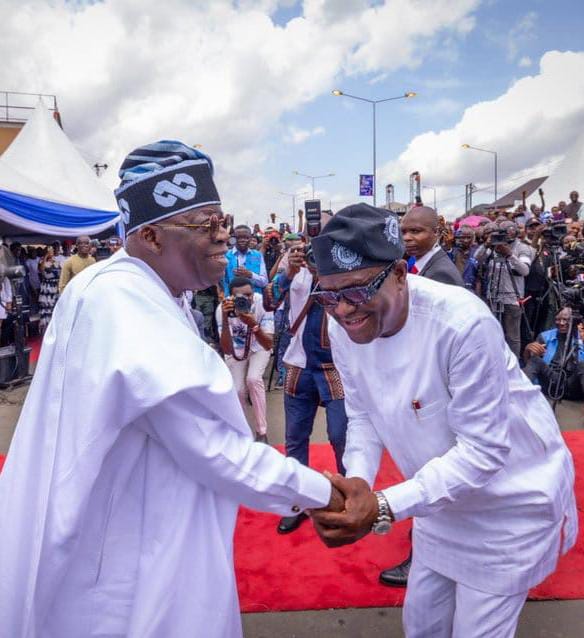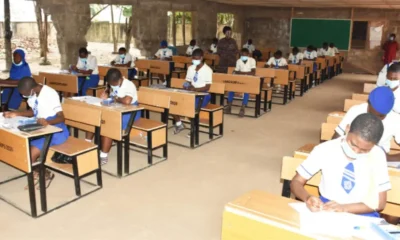Politics
2027: APC, PDP react to Obi, Kwankwaso proposed alliance
The All Progressives Congress (APC) has dismissed concerns over a possible political alliance between Rabiu Kwankwaso of the New Nigeria People’s Party and Peter Obi of the Labour Party in the lead-up to the 2027 presidential elections.
Kwankwaso in an interview indicated willingness to serve as Obi’s running mate under unspecified conditions.
This proposal was welcomed by Labour Party National Secretary Umar Farouk, saying the merger could work if Kwankwaso would be humble enough to work with Obi.
However during an interview, Bala Ibrahim, the APC’s National Publicity Director, expressed skepticism regarding the feasibility of this collaboration, citing past failures of similar efforts before the 2023 elections.
Ibrahim spoke on a fundamental issue of trust between the two politicians, suggesting that neither is likely to compromise on their presidential ambitions.
Ibrahim asserted that the conditions that led to the collapse of the previous alliance remain unchanged.
Ibrahim said, “The underlying and most important factor in that permutation is the word trust, which will be the bane of their agreement. These are experiments that have been conducted several times, and the results cannot be expected to change unless the factor responsible for that result changes. If you don’t change the factor and you carry out the same experiment under the same condition, expecting a different result, you are only deceiving yourself. This is a scientific procedure.
“Now, Kwankwaso and Peter Obi have tried forming an alliance in the past on several occasions, but their romance didn’t last beyond the bedroom. This is because they are strange bedfellows who can’t sleep in the same room. Both of them have one ambition—to lead the country at all costs—and neither is willing to surrender the seat to the other simply because there is this superiority complex between them.
“As long as that complex exists, and it is not likely to diminish, there is not going to be any change to warrant the APC having sleepless nights. What they are proposing now is just rhetoric because they are seeing the progress the APC is making and the changes happening in the political scene. They know that come 2027, the victory of the APC is fait accompli. All they are making is just noise to survive. It is also the ranting of a party destined for doom. So, there is nothing there to give the APC any worry at all. It is a merger that won’t come to pass.”
However, the National Deputy Publicity Secretary of the Peoples Democratic Party , Abdullahi Ibrahim, described the proposed Obi-Kwankwaso alliance as a welcome development.
Ibrahim said that the PDP would support any talks on an alliance or merger that would liberate Nigerians from the current hardship and the grip of the APC-led government.
He said, “It is a welcome development. We were the ones who started the discussion at the instance of the PDP, when the major opposition figures met to review the state of the nation. If there is anything we expect from the opposition going forward, it is for them to close ranks and ensure they chart a common cause, whether it is the Peter Obi-led Labour Party, Kwankwaso’s NNPP, or the PDP that is prepared to lead the direction.
“At least, we are the major opposition and have been in power before at the center for 16 years. Presently, we have 13 governors including the FCT (under Nyesom Wike), making it 14. As of the last count, Wike has still not declared his intention to leave the PDP. So, on account of these things, we are still the major opposition party in the country and for that reason, we are charting the course.
“As earlier said, it is commendable regardless of the fact that it is not our political party. It is in the interest of this country for those who have the wherewithal to ensure they salvage the people from despair and despondency, which seem to have taken over the land. Of course, Nigerians no longer want these people in power and can’t wait to see the back of the APC because of the insensitivity that characterizes their way of doing things.”
Politics
Breaking: Diri Orders Autopsy on Bayelsa Deputy Governor’s Death, Warns Against Politicisation

Bayelsa State Governor, Senator Douye Diri, has ordered an autopsy to determine the cause of death of the state’s Deputy Governor, Lawrence Ewhrudjakpo.
Governor Diri gave the directive on Saturday while receiving former President Goodluck Jonathan at the Government House in Yenagoa.
Reacting to the incident, the governor condemned what he described as widespread misinformation and speculation on social media, warning against any attempt to politicise the deputy governor’s death.
“I want to make an appeal. I have seen people politicise his death. In Ijaw land, there is no enmity in death. Let nobody politicise the passing of our dearly beloved deputy governor,” Diri said.
“If anyone truly loves him, this is the time to show it. I have directed that an autopsy be carried out to reveal the cause of his death. There is a lot of nonsense going on on social media.”
The governor further urged the public to focus on mourning and honouring the late deputy governor, noting that the state government had declared three working days of mourning in his honour.
“If anyone is issuing statements to eulogise him, let it end there. Let us mourn him because Bayelsa State is in a mourning mood,” he added.
Governor Diri also called for unity and love among the people, reminding them of the inevitability of death.
Speaking during the condolence visit, former President Goodluck Jonathan described the late Ewhrudjakpo as a committed and dedicated individual who played a key role in the activities of his foundation.
“For me, he was someone my foundation and I will never forget. He represented the governor in all our programs,” Jonathan said, adding that Ewhrudjakpo worked tirelessly in that role, even more than when he served as deputy governor.
Politics
N1.4 Trillion not enough to get me into politics – Bishop Oyedepo reveals

The founder of Living Faith Church, Bishop David Oyedepo, has said he will never take part in partisan politics, not for even billions of naira.
He stated that no amount of money, including “$1 billion,” (1.4 Trillion naira) would make him join politics.
Oyedepo made this known during an impartation service at Shiloh 2025 held at the church’s headquarters in Canaanland, Ota, Ogun State.
He explained that partisan politics is not part of his life’s calling and that is why he has chosen to stay away from it.
In his words: “In 2015, I warned the church that trouble was coming. Didn’t trouble come?
“Partisan politics is off my calling. If you give me $1 billion to join politics, I won’t, because it is off my course.”
The bishop also said the world is in urgent need of God’s intervention because of the times we are living in.
According to him, believers are being trained as an end-time army to bring solutions to national and global problems, similar to what biblical figures like Joseph and Daniel did.
EVENTS
Wike at 58: “You’re a Shinning Star in my Cabinet, Tinubu hails Wike.

President Bola Tinubu congratulates Chief Nyesom Wike, Minister of the Federal Capital Territory (FCT), on his birthday, December 13.
President Tinubu celebrates with the Minister and former governor of Rivers State, giving thanks to God Almighty for enriching him with a life defined by purpose, service, and courage.
The President describes Chief Wike as an audacious top performer who defies obstacles and delivers results.
President Tinubu acknowledges the ongoing transformation of the Federal Capital Territory through infrastructure expansion, highlighting the Minister’s recent intervention that broke the 14-year logjam in the construction of the Apo-Karshi road.
The President commends Chief Wike for his resilience, can-do attitude, and commitment to excellence in all assignments.
President Tinubu thanks the Minister for his consistent efforts in delivering results and wishes him a happy birthday and strength to further his good work in the FCT.
“Nyesom Wike has been one of the shining stars in the cabinet, an exceptional performer, developing infrastructure in the Federal capital as never seen before and proving that his moniker as ‘Mr Project’ is not limited to his home state of Rivers.
“I commend him for being one of the champions of our Renewed Hope Agenda, even though he belongs to another party and wish him well as he marks another year in his life journey”.
Bayo Onanuga
Special Adviser to the President
(Information and Strategy)
December 13, 2025
-
Business1 year ago
US court acquits Air Peace boss, slams Mayfield $4000 fine
-

 Trending1 year ago
Trending1 year agoNYA demands release of ‘abducted’ Imo chairman, preaches good governance
-

 Politics1 year ago
Politics1 year agoMexico’s new president causes concern just weeks before the US elections
-

 Politics1 year ago
Politics1 year agoPutin invites 20 world leaders
-

 Politics1 year ago
Politics1 year agoRussia bans imports of agro-products from Kazakhstan after refusal to join BRICS
-
Entertainment1 year ago
Bobrisky falls ill in police custody, rushed to hospital
-
Entertainment1 year ago
Bobrisky transferred from Immigration to FCID, spends night behind bars
-
Education1 year ago
GOVERNOR FUBARA APPOINTS COUNCIL MEMBERS FOR KEN SARO-WIWA POLYTECHNIC BORI













